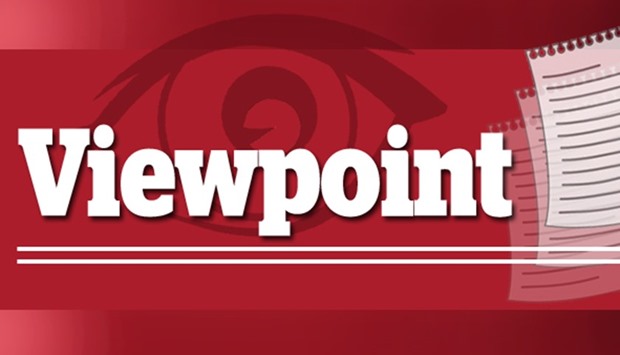US President Donald Trump is accustomed to addressing diehard supporters at rallies. His press conferences are rare and tightly controlled. So the open derision of his fellow leaders at the UN General Assembly clearly came as a surprise.
He insisted he was “OK” with the mirthful reaction to his claims of historic achievements, but he was clearly not OK. Trump is said never to forgive or forget those who laugh at him, so this second outing at the UN podium is unlikely to end well for his administration’s already ambivalent relations with the global body.
Trump made an entrance – nearly half an hour later than his allotted time – determined to trash everything the UN stands for. The president explicitly rejected “the ideology of globalism” in globalism’s high temple and proposed in its place the “doctrine of patriotism”.
While most leaders have used their time on the UN stage to list the agreements they have made, the protocols agreed and treaties signed, Trump clearly delighted in telling the world how many such pieces of paper he had ripped up.
The lead writer of the speech was reportedly Stephen Miller, now the primary bridge between the White House and the American far right. It showed. The address was a manifesto for nativism.
Any remaining pretense of altruism was stripped away from this vision of US foreign policy, and in its place was a strong tinge of resentment and self-pity.
Trump observed that the US was the world’s biggest aid donor, “but few give anything to us. Moving forward, we are only going to give foreign aid to those who respect us and, frankly, are our friends.”
Trump read out a list of friends, and it was an unusual assortment, reflecting his personal relationships of the moment, rather than longstanding US alliances.
Kim Jong-un, the world’s most absolute dictator, was awarded the first shoutout, the latest instalment in his reward for the spectacular theatre he helped stage at the two leaders’ June summit in Singapore.
The only European ally to merit praise was Poland, whose President, Andrzej Duda, had this month visited Trump at the White House and showered him with praise, even offering to name a future US military base on Polish soil “Fort Trump”.
The central villain of Trump’s narrative was Iran and its government. But even in the case of Tehran, the president left open a door to redemption, tweeting in the dawn hours before his UN appearance that he was sure that Iranian President Hassan Rouhani was in fact “an absolutely lovely man”.
The clear message was that if Rouhani was to follow the path taken by Kim, to meet and pay homage to Trump, Iran could escape the isolation the US administration is now trying to reimpose.
The approach reflected a misunderstanding of the deep differences between North Korea and Iran. However, Trump’s speech was not aimed at coherence. The “doctrine of patriotism” was a misty-eyed paean to national chauvinism. It presented the nation state as the “only vehicle where freedom has ever survived, democracy has ever endured or peace has ever prospered”. And it was nationalist passion alone that inspired “scientific breakthroughs, and magnificent works of art”.
His fellow leaders may have chuckled, but Trump’s words were intended for another audience: his core supporters who despise the UN and all it represents. They are as determined as their hero to wipe the smiles off the faces of the “globalist” enemy.

